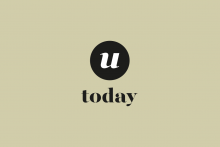The Advice Committee Education (ACO) has not given a positive or negative advice on the application of the UT to start a Medicine programme in 2003. First a decision has to be taken at the political level on how to solve the dire lack of doctors structurally.
The UT is allowed to start the (social sciences) programme health sciences, as well as the broad technical bachelor. Rector van Vught calls the advice from the ACO, advising the education secretary on new programmes, 'a small step ahead'. 'It would have been more satisfying to get Medicine in one go, but we are still in the race.' Van Vught hopes that parliament will declare itself on the course to be taken before the May elections.
Variants playing a role in this process are the plans for a full, new educational programme in Enschede; the one from the Brabant Medical School (a joining of forces by the two large hospitals in Eindhoven and Tilburg, supported by the technological and social sciences expertise of both universities in that region); and also a rigorous, almost impracticable increase in capacity of the eight existing medical programmes.
Van Vught can accept the point of view of the ACO. 'Maastricht and Rotterdam had the same experience, before they obtained a medical faculty.' The advice committee praises the innovative character of the Twente plans, fed by the ICT contribution, as well as the existing biomedical technology and the new educational methods. The co-operation with M³nster is also judged positively, even though the geographical distance between the two locations is considered a minus according to the ACO. Van Vught: 'Peculiar. M³nster is closer than any other faculty in the Netherlands. There is a direct train connection and I foresee that it will be more a case of German professors coming here than that students will travel to M³nster on a daily basis.'
In April 2002 an independent government-appointed committee will be publishing their advice on the expansion of the educational capacity for doctors and dentists. It is possible that on the basis of the committee's findings a tender-procedure will be started, like an application process for a limited number of candidates. The relationship between price and quality of the existing and the new programmes on offer will be decisive when granting permission. The ACO advises the UT to investigate rapidly with which universities in the Netherlands they can also co-operate in the area of medicine.'We will start working on that and will report to those responsible', according to the Rector Magnificus.
Health sciences, starting September 2003, is the seventh new programme to be introduced at the UT during the reign of Frans van Vught. 'It is after biomedical technology the second part of the desired trilogy. Now for a medical programme' As long as this has not been brought in, health sciences will become part of the faculty Public Policy and Public Administration. The broad bachelor in social sciences did not get the green light from the ACO.







